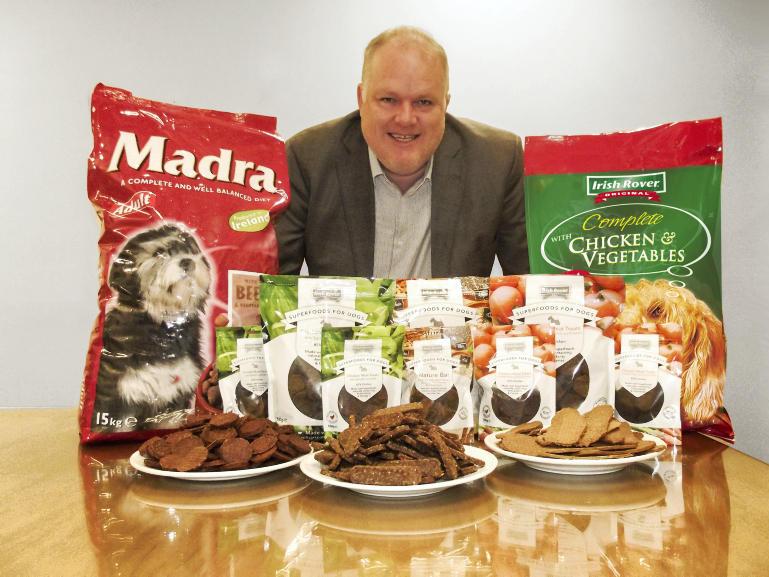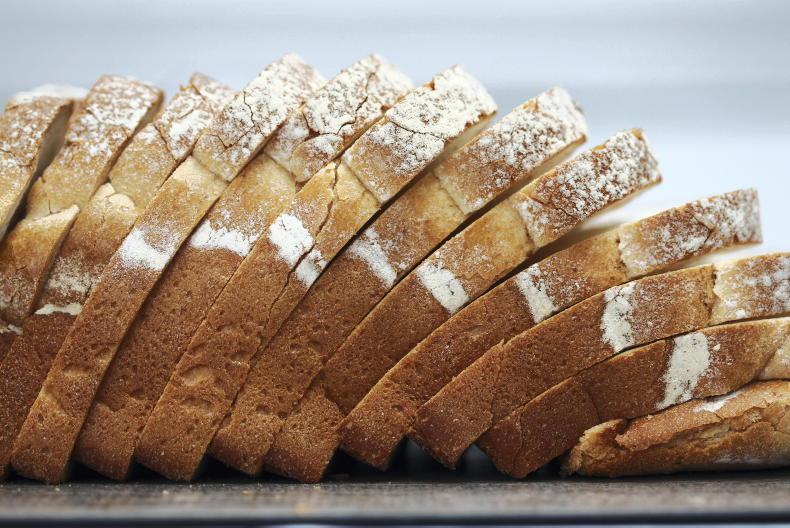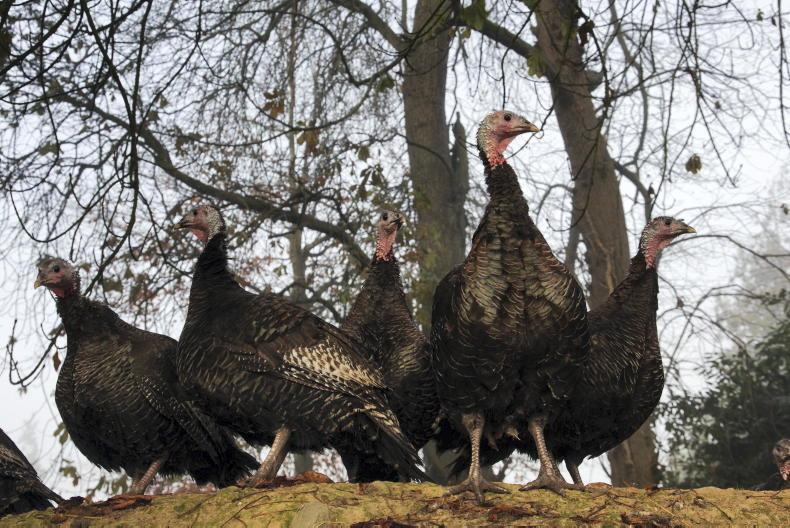While generally operating below the radar, Irish Dog Foods export story is one of remarkable diversification over a very short time frame.
According to managing director Liam Queally, the Brexit vote in the UK in June 2016 forced a complete rethink of the company’s export strategy.
“After the Brexit vote we turned the business on its head and started focusing on other markets,” says Queally. “We started looking at Europe initially and then turned to the US market. In 2016, the UK market accounted for 80% of overall sales in this business. Today, it accounts for less than 15% of sales.”
While the UK market now accounts for a smaller share of exports, Queally says sales to UK customers have actually grown over the last two years. The big difference has been the increase in product being shipped to key markets like Germany and the US.
“I believe we won Irish exporter of the year because of our story of diversification away from the UK. But we’re not forgetting about the UK,” says Queally. “We plan to invest money this year in one of our UK factories and double it in size.”
Irish Dog Foods’ main manufacturing facility is its Naas headquarters, which was previously used as a food manufacturing plant by Green Isle foods. Since acquiring the plant, Irish Dog Foods has doubled the facility’s capacity.
The big game changer for the business has been the US market. Like the Irish beef processors, Irish Dog Foods only gained access to the US market when Irish beef was granted access to the US market in 2015. For more than 15 years, Irish beef was banned from the US following the BSE crisis in the late 1990s.
While Irish beef companies have yet to see any major success in the US, Queally says his company has really benefitted since regaining access and is shipping big volumes of pet food into the US.
“We were up and running in the US straight away and we had to move very quickly when Ireland regained market access,” says Queally. “We initially landed a contract to supply Walmart but that was nearly too big to start with. We’ve restaged how we’re handling America and we’re working with Costco on a region-by-region basis. We’re also working with regional retailers like HEB, which is the biggest privately owned company in Texas.”
According to CSO trade figures, more than 3,700t of pet food was shipped to the US last year, which is 2.5 times the volume of Irish beef shipped for human consumption. Queally says he hopes to treble sales into the US in the coming years.
Right now, Irish Dog Foods is shipping about 2,000 pallets of pet food and almost 500 pallets of treats to 25 different markets every week. According to Queally, this is very much a volume business. When entering a new market, Irish Dog Foods will target the top two or three retailers in the country because they will want large volumes. The company is shipping seven or eight containers a week to the German discounters alone, says Queally.
Queally family
Irish Dog Foods is part of the Arrow Group, a conglomerate company owned by the well-known Queally family that includes Dawn Farm Foods and QK Meats. The Queally family are also shareholders in the Waterford-based beef processor Dawn Meats. The Arrow group had sales close to €0.5bn and pre-tax profits of €38m for its 2016 financial year.
The Queallys bought the Irish Dog Foods business in the early 2000s with the aim of using the business as an outlet for fifth-quarter products from its cattle processing business. The company initially manufactured dry dog food for the retail market under branded and private labels.
However, the business has evolved significantly over the years with a much greater focus today on premiumisation.
“We spotted that our future was going to be in designing meat treats and the humanisation of pet food products. We started the move towards humanisation of pet food products with some very basic products such as burgers and sausages for dogs,” says Queally.
“But over the last five to seven years the whole humanisation aspect of the pet food market has become very big. In the US, our customers don’t use the term pet owner any more. They use the word pet parent. The pet is now a member of the family and the consumer spend on products for the pet has gone up significantly over the last 10-15 years,” he adds.
Superfoods
Queally said the most successful products over recent years have been the company’s superfood range of pet foods that are made with meat and added kale, spinach, carrots or sweet potato. The company is playing into the clean, green image of Ireland with its customers in the US.
“In the US, we’re marketing our product as grass-fed, antibiotic-free and hormone-free. The fact we can offer that is huge for our retail partners over there,” says Darren Keating, business innovation and marketing manager with Irish Dog Foods.
“You have to remember it’s not the dog that’s buying these products – it’s the human. We sell products that play into that indulgent category or health category for animals. We’ve developed and launched our superfood range but also a new range of functional treats that are focused on mobility, cognitive, antioxidant and digestive health. These are all things people are willing to spend their money on for their dog,” adds Keating.
Playing further into the ultra-humanisation of pet food, Irish Dog Foods have developed a range of comfort treats such as cheese burger beef bites, chicken fried steak and fried rice chicken bites.









SHARING OPTIONS